News

Channel 4 accountable for any unforeseen repercussions stemming from their unfounded claims - MoD
The Ministry of Defence (MoD) has vehemently denounced the accusations levelled by Channel 4 documentary on the Easter Sunday bombings.
Issuing a statement, the MoD emphatically asserted that Channel 4 will be held unequivocally accountable for any unforeseen actions or repercussions stemming from their unfounded, malevolent, and poorly substantiated claims made in the video documentary. "On behalf of the Government of Sri Lanka, the Ministry of Defence categorically refutes these false allegations and reiterates the government's unwavering commitment to the truth, justice and the well-being of the nation," it added.
Full text of the statement by MoD is reproduced below.
"In the face of a heinous and merciless assault that shook the world - the Easter Sunday Attack of 2019 - which claimed the lives of nearly 270 innocent souls, including children and foreigners, Sri Lanka and the International Community watched in horror.
In the wake of this catastrophe, the Sri Lankan Government, its Law Enforcement Agencies, Security Forces and international investigation agencies launched exhaustive investigations. Over the years, these investigations, both local and international, have consistently pointed to ISIS-affiliated group members led by Zahran Hashim as the architects of this horrifying tragedy.
However, it is with unwavering resolution and an unyielding commitment to the truth that the Ministry of Defence wishes to respond to the recent documentary produced by British Channel 4 television corporation on 5th September 2023. This documentary audaciously shifts the blame of the Easter Sunday Attack onto Military Intelligence and Major General Suresh Sallay, the present Director General of the State Intelligence Service of Sri Lanka.
The Ministry of Defence vehemently denounces the accusation of orchestrating the attack and assisting the bombers against a dedicated senior military officer who has served the nation for 36 years. Major General Suresh Sallay served at the Sri Lanka High Commission in Malaysia as Minister-Counsellor from December 2016 until December 2018. He left for India on 3rd January 2019 and returned to Sri Lanka on 30th November 2019 after completing the National Defence College Course in Delhi. This officer was never in Sri Lanka during the period mentioned in the Channel 4 video documentary.
Furthermore, during the said period (December 2016 to November 2019), this officer was not employed in the Intelligence and Security Apparatus of the country, nor did he hold any official responsibilities in those fields. The Ministry of Defence also reiterates that no terrorists involved in the Easter Sunday attack have ever been on the government payroll. Therefore, the Ministry of Defence categorically refutes these outrageous allegations and expresses profound dismay at Channel 4 for promulgating such a malicious and unsubstantiated narrative.
In the wake of the Easter Sunday Attack, successive Sri Lankan governments have demonstrated an unwavering commitment to uncovering the truth. They have done so by facilitating transparent investigations conducted by both local and international professional agencies.
These investigations, including the meticulous work of the Criminal Investigation Department, Counter Terrorist Investigation Division and the Presidential Commission of Inquiry (PCoI), have consistently corroborated the responsibility of the radical extremist group for the attack. Additionally, the Sectoral Oversight Committee on National Security has played a pivotal role in proposing measures to bolster national security.
Moreover, it is imperative to underline that the comprehensive investigation conducted by the Australian Federal Police (AFP) and by the Federal Bureau of Investigation (FBI) in the United States, along with the subsequent verdict rendered by the US Department of Justice, have reaffirmed the findings of local investigations. This resounding endorsement from an international investigative agency further substantiates the accuracy and integrity of the investigation.
Despite unwavering and magnanimous endeavours, Channel 4's myopic and malevolent conduct not only imperils the very fabric of Sri Lankan society by sowing seeds of discord but also shamelessly jeopardizes the reputation and safety of those who have resolutely upheld their integrity and responsibility.
While the Ministry of Defence respects the freedom of expression and upholds the significance of investigative journalism, the Ministry of Defence emphatically asserts that Channel 4 will be held unequivocally accountable for any unforeseen actions or repercussions stemming from their unfounded, malevolent, and poorly substantiated claims made in the video documentary.
On behalf of the Government of Sri Lanka, the Ministry of Defence hereby categorically refutes these false allegations and reiterates the government's unwavering commitment to the truth, justice and the well-being of the nation."
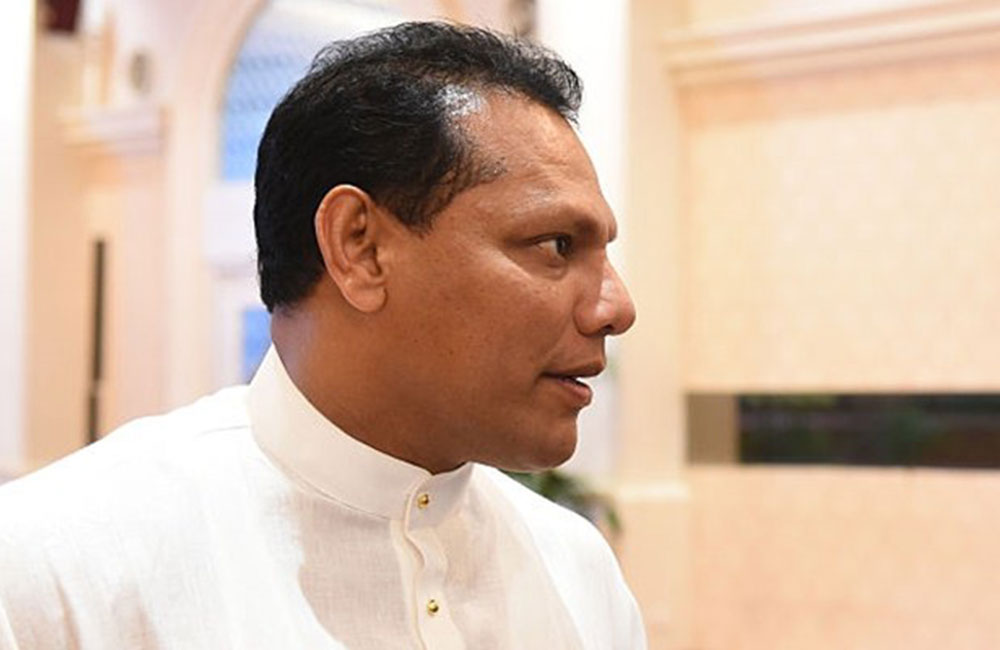
Maithri suspends Dayasiri’s party membership
The general secretary of the Sri Lanka Freedom Party (SLFP) Dayasiri Jayasekara has been stripped of his party membership with immediate effect, according to a decision taken by the party’s politburo that met last night (05).
Party chief Maithripala Sirisena sent a letter, informing Jayasekara that he was taking the decision as per the powers vested in him by clause 15 of the SLFP constitution.
As per the constitution, a disciplinary inquiry will be conducted against him, with a charge-sheet sent within the next 14 days, said the letter.
It is said that the main accusation against Jayasekara is that he had secretly plotted to remove Sirisena from the party leadership.
Also, disciplinary violations are to be cited against him.
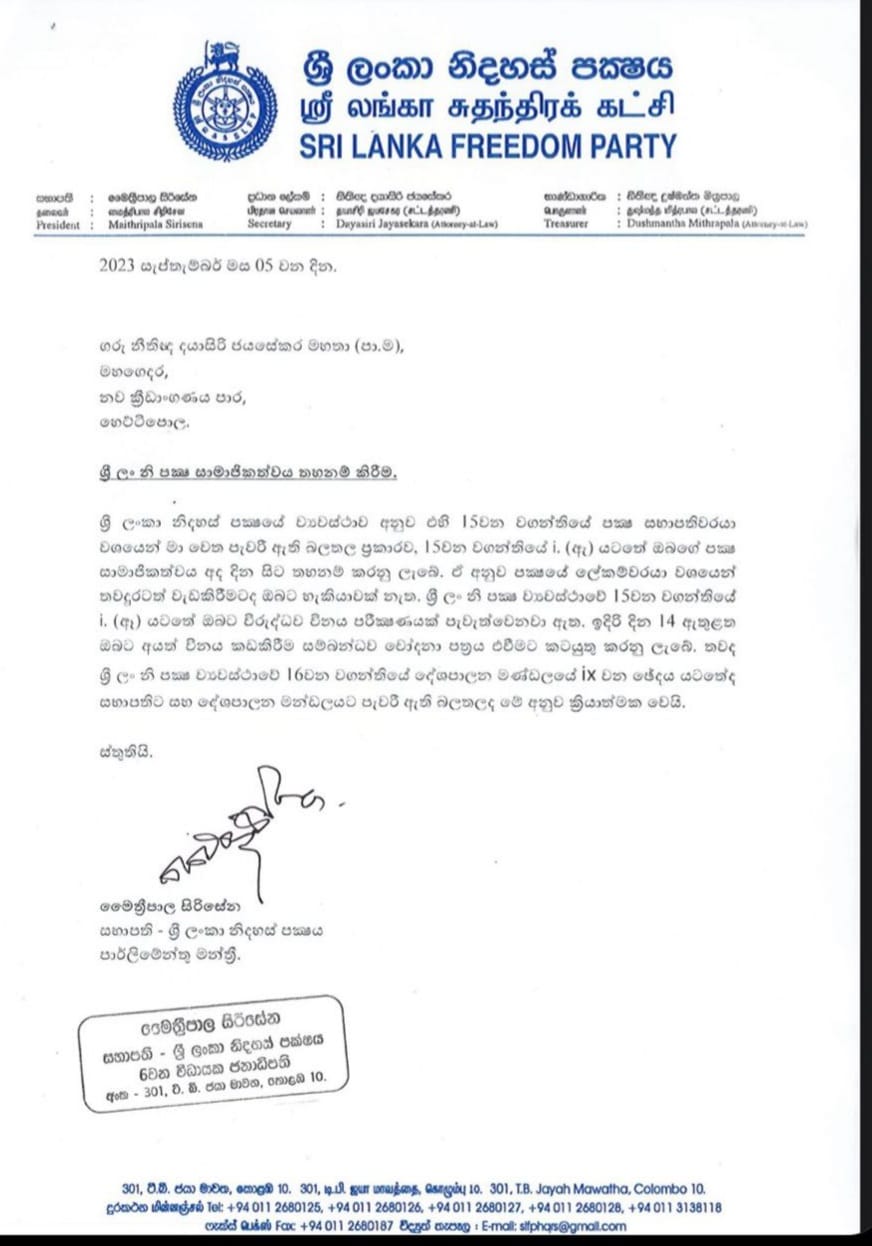
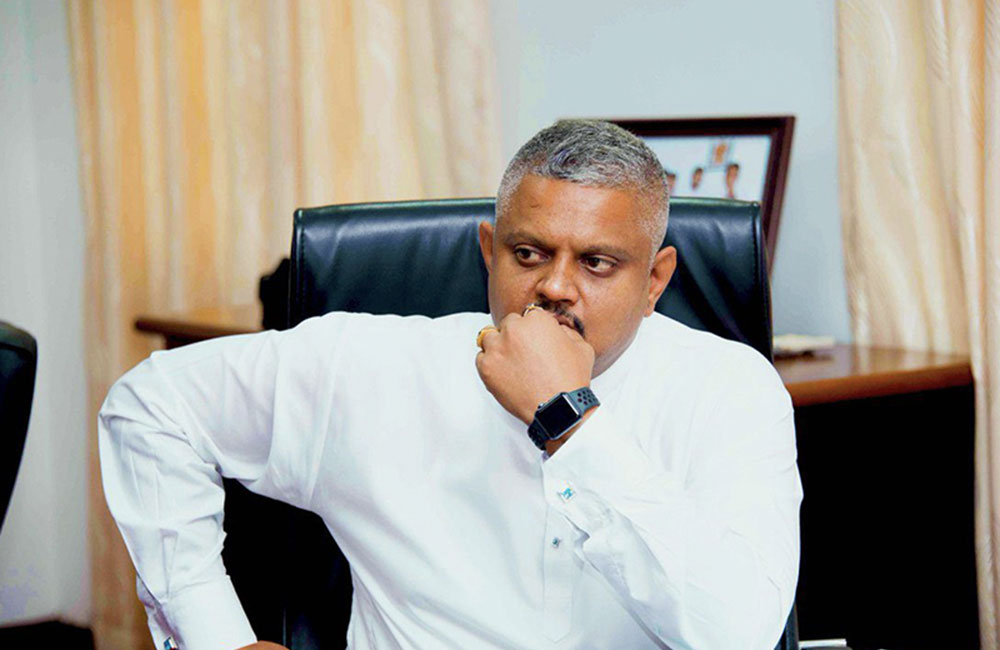
Change attitudes before system change – Kanaka Herath
It is important to change attitudes before going for a change in the system, said state minister Kanaka Herath yesterday (07).
He was speaking during the House debate on the no-faith motion against health minister Keheliya Rambukwella.
Herath said despite various criticisms, Sri Lanka has the best health service in South Asia, in the form of a free universal healthcare system.
He also said that he felt that although many want a system change, any system implementation does not move forward.
Human resources, administration, procurement and everything else should be centralized.
Removing the health minister for a system change is useless because he is just one figure in the entire system.
He expressed belief that the proper use of technology would solve most of the outstanding issues.
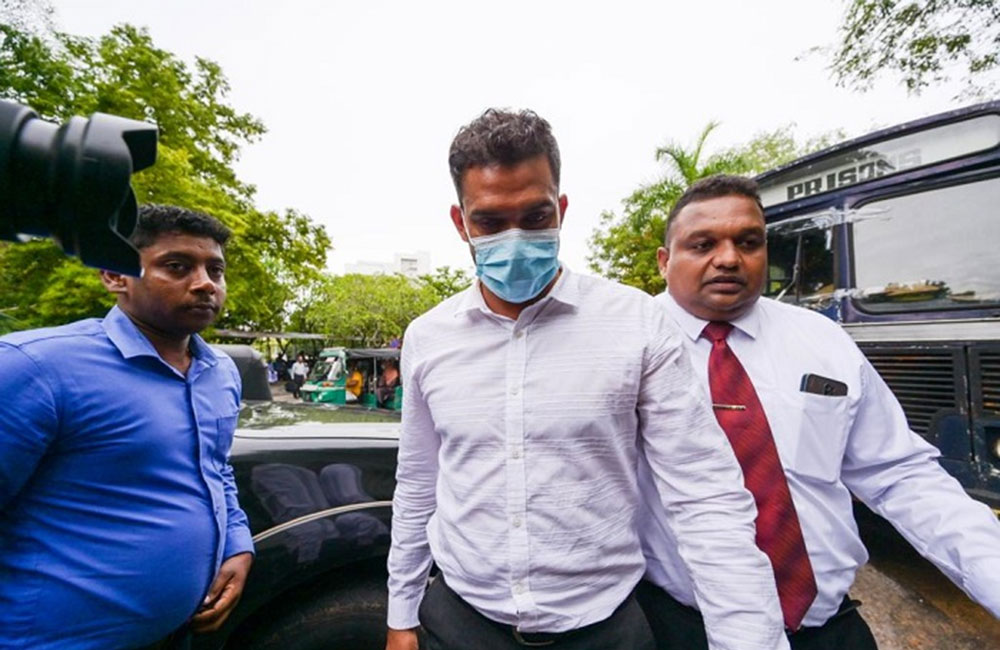
Former cricketer Sachithra Senanayake remanded
Former cricketer Sachithra Senanayake has been remanded on charges of match-fixing during the Lanka Premier League (LPL).
The Colombo Chief Magistrate remanded the former cricketer until September 15 after he was produced in court today.
Sachithra Senanayake was arrested earlier today after surrendering to the Special Investigation Unit of the Sports Ministry.
He is accused of trying to fix matches during the Lanka Premier League (LPL) in 2020.
It is alleged that Senanayake had approached two cricketers in the first edition of the Lanka Premier League (LPL) in 2020 via telephone from Dubai to fix matches.
In August 2023, the Colombo Chief Magistrate’s Court imposed a three-month travel ban on the former cricketer after a probe was launched into match-fixing allegations.
The former off-spinner has denied all the allegations, claiming them as baseless charges aimed at defaming him and his family.
Sachithra Senanayake (38) has played one Test, 49 ODIs and 24 T20 Internationals for Sri Lanka between 2012 and 2016.
newswire.lk
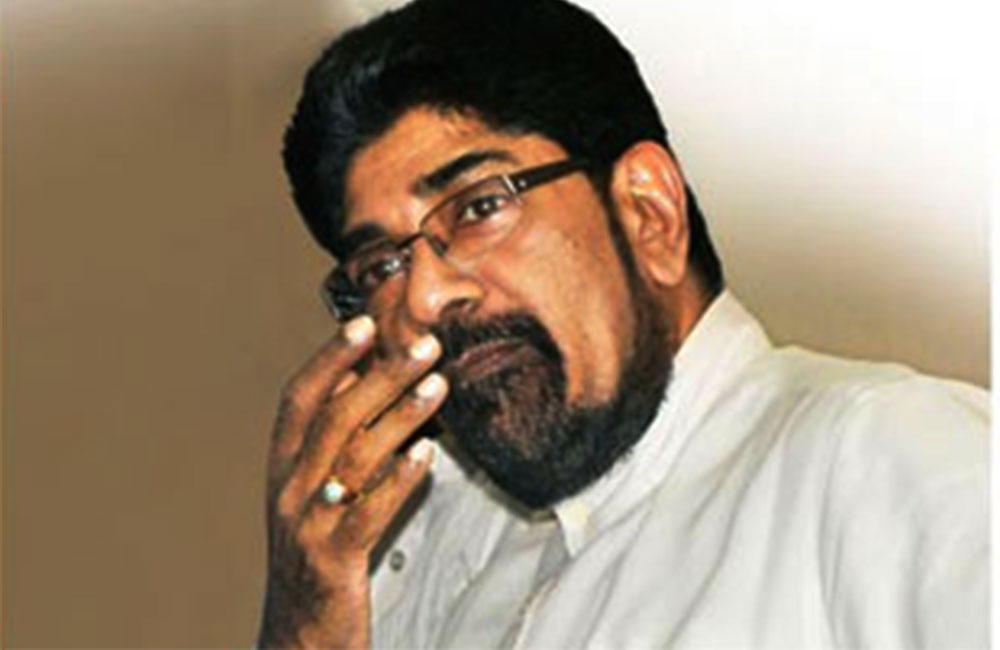
NCM against Health Minister defeated in Parliament
The No Confidence Motion against Minister of Health Keheliya Rambukwella has been defeated after being taken up for a vote in Parliament today (Sep 08).
The motion was presented by the Opposition over the shortage of medicines and medical supplies in Sri Lanka, and several deaths reported at state hospitals in the recent past due to the administration of substandard medication.
The Motion of No Confidence was taken up for debate in Parliament for a period of three days this week with a vote being held today.
During the vote, the No Confidence Motion was defeated with 113 MPs voting against it and 73 MPs voting in favour.

‘Choon Paan’ seller remanded for uploading threatening fb post on president
A 19-year-old 'Choon Paan' seller arrested for allegedly uploading and sharing a threatening Facebook post on president Ranil Wickremesinghe, was ordered to be remanded till September 8 after being produced before the Colombo Chief Magistrate's Court.
The suspect, a resident of Eppawala was arrested by the CID on suspicion ahead of the President's scheduled visit to the Thambuttegama and Eppawala areas on September 07.
The CID submitted to court that they were investigating to ascertain wheather there is any connection between this incident and an army soldier residing in Eppawala fleeing with a T-56 weapon from a the Kilinochchi Army Camp.
The suspect allegedly uploaded a Facebook post regarding the possibility of finding a sniper ahead of the President's scheduled visit to Eppawala area on September 7.

(dailymirror.lk)
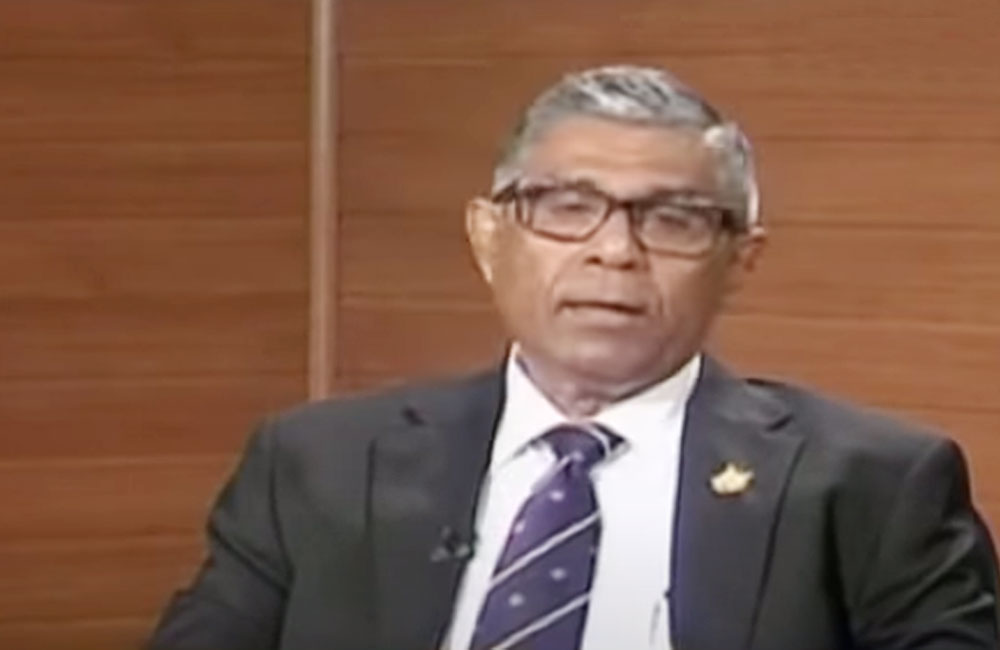
Prof. Jayantha Balawardane appointed Chancellor of Uva Wellassa University
President Ranil Wickremesinghe has appointed Professor Jayantha Balawardane as the Chancellor of the Uva Wellassa University, the President’s Media Division (PMD) said.
The appointment will be in effect from 09 October, 2023, according to the PMD.
Professor Balawardena is a senior academic and a Consultant Oncologist. Professor Balawardena is a highly respected academic with over 30 years of experience in the field of medicine.
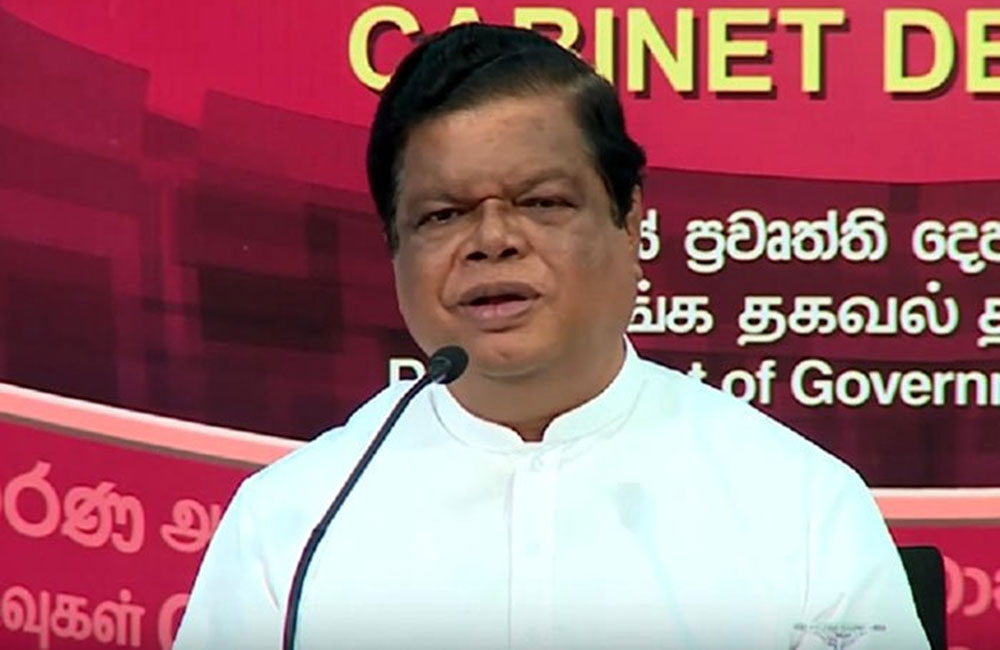
Investors called to purchase electric buses for Western Province – Minister
Investors have been allowed to purchase 200 electric buses for operation in the Western Province, Minister of Transport, Highways and Mass Media Dr. Bandula Gunawardena said.
Speaking at a press conference held at the Presidential Media Centre (PMC) on Monday (04 Sep.), the Minister highlighted that this program will be implemented in accordance with the world agreement where all public transportation worldwide will be free from fossil fuels by 2030.
Accordingly, he stated that an Expression of Interest (EOI) has been called for the project, allowing investors to import 200 electric buses for the Western Province, while also enabling them to establish charging points.
Below is the full speech delivered by Dr. Bandula Gunawardena; “Investors have been allowed to import 200 electric buses for the Western Province. For this project, Expression of Interest has been called.
It will be implemented as a domestic and foreign joint venture. Also, the investors have been allowed to establish charging points.
The investor would be allowed to operate the project to recover the invested capital. Thereafter, within a certain period, the ownership of the buses will be acquired by the government. Any country in the world including China and Korea could apply for this project. This is an investment opportunity.
There is a global consensus that all public transport in the world should reach zero emission by 2030. Those involved in carbon trading are investing in this to protect the ecosystem. Electric buses bring great value to the environment. Various organizations in the world are paying a high price to protect this value.
Also, all government institutions should be digitized to prevent decrease in income. A cabinet paper has been presented to replace issuance of tickets with electronic cards. When you transact using advanced technology such as card or QR system instead of cash, you could increase the income of each of these institutions by at least 50%.
Institutions such as the Inland Revenue Department, Customs, Excise Department, Railways, Sri Lanka Transport Board, etc. can be rebuilt through modern technology. Without it, the government cannot bear the burden. Many changes have been made to the railway system.
A shipment of rail tracks has been brought to the port after 4 years under the loan assistance of the Asian Development Bank. The railway line from Colombo to Panadura is in a state of dilapidation. Coastal railway tracks need to be replaced at least every 5 years. As a result of the dilapidated railway lines, the trains have to run at a reduced speed, causing delays for commuters who have to report for duty on time.
Therefore, the restoration work of the railway track from Colombo to Panadura will commence within the next few days. The northern railway line was temporarily closed since January to upgrade the tracks from Anuradhapura to Kankasanthurai.
Further upgrades are scheduled on this northern track from Mahawa to Anuradhapura in January 2024. Once these upgrades are completed, trains on the northern track would be able to operate at a speed of 100km per hour from Colombo to Kankasanthurai.
A loan agreement is to be signed under Indian loan assistance for the modernization of the signalling system. A renovation process to increase the speed by removing the speed limits of the Kelanivalley railway line will commence from the first week of this month.
If a train carriage is imported from abroad, it costs Rs. 200 million. A Sri Lankan entrepreneur refurbishes a train carriage for Rs. 25 million. Accordingly, it is hoped that the existing railway carriages will be renovated through the upcoming budget.
Employees are impressed with our program. The trade unions are now supporting us. We also get their support in dealing with polluters. I appeal to the trade unions not to inconvenience passengers in order to achieve their demands. In the event there are issues that affect them, it could be discussed with the relevant officials where a solution could be found.
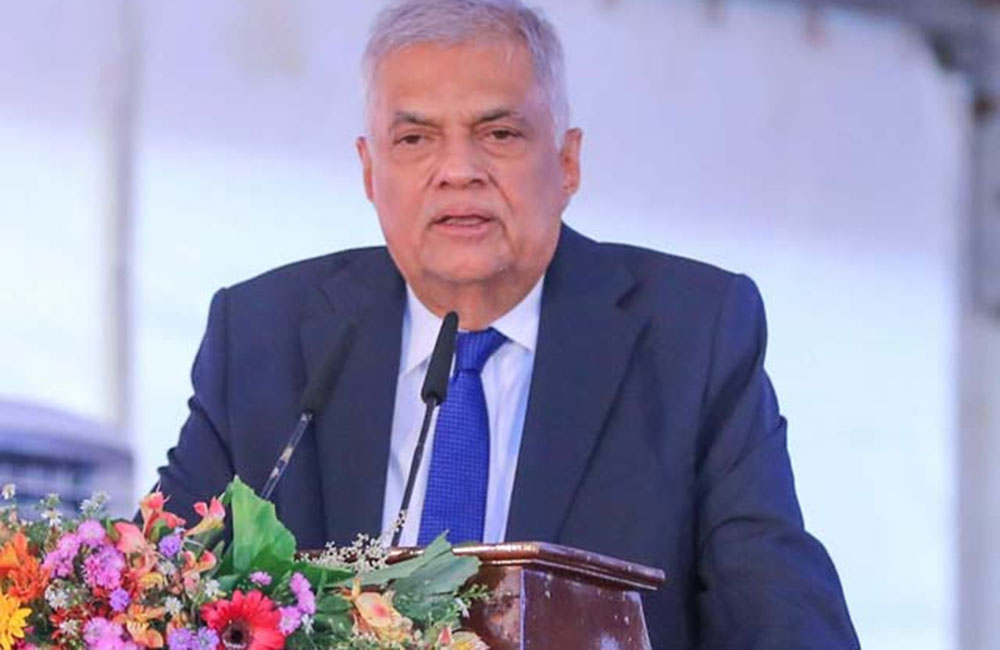
Biyagama Free Trade Zone’s success to be replicated
President Ranil Wickremesinghe outlined an ambitious vision for Sri Lanka’s economic future during his address at the centenary celebration of Al Mubarak Central College in Malwana.
He emphasized the replication of the Biyagama Free Trade Zone’s success as a blueprint for modern commercial industrialization to be implemented nationwide. This strategy aims to propel the country towards rapid development within the next 15-20 years.
President Wickremesinghe noted the significant progress made in the Biyagama region since the establishment of the trade zone and highlighted the nation’s potential to become a thriving investment hub. He unveiled plans to open up several new investment opportunities on a global scale, paving the way for Sri Lanka to emerge as a prominent investment destination.
The President’s remarks were delivered during the centenary celebration ceremony, where he also revealed that several areas, including Bingiriya, Hambantota, Kandy, Trincomalee, and the Northern Province, have been earmarked for the establishment of industrial estates. These areas are set to undergo rapid development, transforming into vibrant commercial cities.
Furthermore, President Wickremesinghe stressed the commitment of local representatives to attract investment opportunities for the advancement of their respective districts. He cited the example of the Biyagama investment zone, which has evolved into the premier trade zone in South Asia. President Wickremesinghe asserted that replicating the success of industrialization seen in Biyagama and Katunayake across all provinces is crucial for alleviating economic pressures.
President Wickremesinghe also highlighted the government’s dedication to strengthening the country’s economy while simultaneously creating employment opportunities for the nation’s youth.
(PMD)

Cyber Security Bill receives AG’s clearance
The Bill on Cyber Security, as prepared by the legal draftsman, has received due clearance from the Attorney General.
The relevant Bill was introduced in a bid to shield society from the spread of false information and other malicious manipulations they may be exposed to on the internet.
Accordingly, the proposal tabled by Minister of Public Security Tiran Alles to publish the Bill via a gazette notification and subsequently present it for parliamentary approval, was approved by the Cabinet of Ministers at a meeting held on Monday (04 Sep.).
As per the approved Bill, statements spreading false information about incidents that have taken place in the country, defamatory statements, statements causing religious disharmony, or those pertaining to child abuse and other forms of harassment, amongst others, have been interpreted as offenses under the provisions of Part III of the said Bill.

President says plans afoot to establish 10 new universities in Sri Lanka
President Ranil Wickremesinghe says he has initiated the groundwork for an education system fit for the 21st century by gathering insights from abroad, experts and student parliaments.
At a recent meeting with Sivali Central College’s student parliament in Ratnapura, the Head of State engaged in a friendly discussion with the 140 student representatives who visited the Presidential Secretariat, the Presidential Media Divsiion (PMD) said.
During the interaction, Wickremesinghe has explained the role of the Presidential Secretariat in Sri Lanka’s government decision-making process, its history and structure.
According to the PMD, he has also shared plans to establish 10 new universities in the country and facilitate higher education opportunities in England and the United States through student loans.
Students will have the freedom to choose their desired subjects, the president said adding that educational reforms, including new technology colleges, are under consideration.
Wickremesinghe encouraged the students to actively participate in college student parliament activities and even invited them to hold meetings in the main auditorium of the Presidential Secretariat, where Sri Lanka’s first parliament convened.
He also acknowledged the presence of students from the previous group, expressing gratitude for the opportunities provided by his administration.
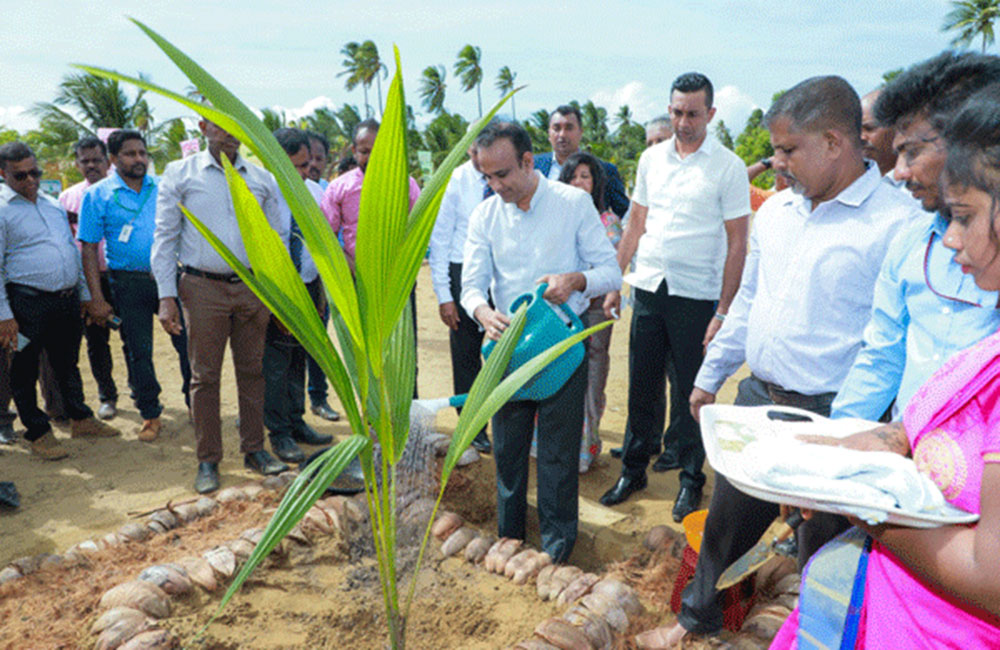
Sri Lanka’s Second Coconut Triangle : Three districts revealed
Sri Lanka’s Second Coconut Triangle : Three districts revealed September 3, 2023 at 1:51 PM
In a strategic move aimed at bolstering export revenue, Sri Lanka has inaugurated its second coconut triangle in the Northern Province. This new triangle encompasses the regions of Jaffna, Mannar, and Mullaitivu Districts.
Plantation Minister Dr. Ramesh Pathirana emphasized the remarkable growth in coconut export revenue in recent years, attributing it to the diverse range of coconut-derived products that have garnered increased global demand. Projections indicate that this year’s exports related to coconuts are expected to bring in USD 700 million. Over the next decade, it is anticipated that coconut-based exports will contribute a substantial USD 2 billion to the nation’s revenue.
Sri Lanka traditionally allocated two-thirds of its coconut production for domestic consumption, with the remaining one-third designated for export. To further enhance export potential, Minister Pathirana highlighted the need to rebalance this ratio. This ambitious initiative aims to solidify Sri Lanka’s status as a prominent player in the global coconut market and foster economic growth in the Northern Province through increased coconut cultivation and processing.
The launch of the second coconut triangle represents a significant stride toward achieving these objectives and highlights Sri Lanka’s commitment to harnessing the full potential of its coconut industry.
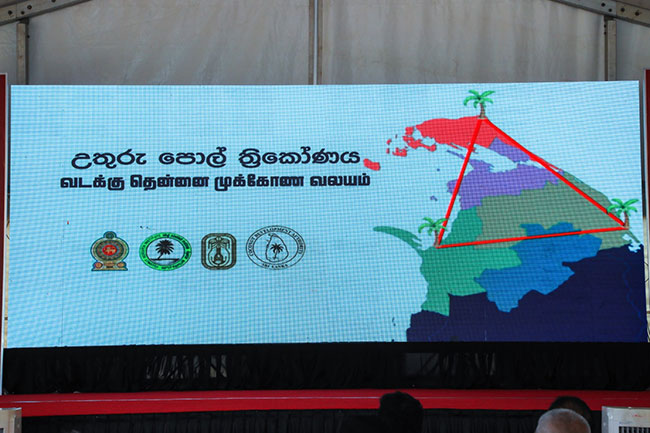
Page 229 of 660